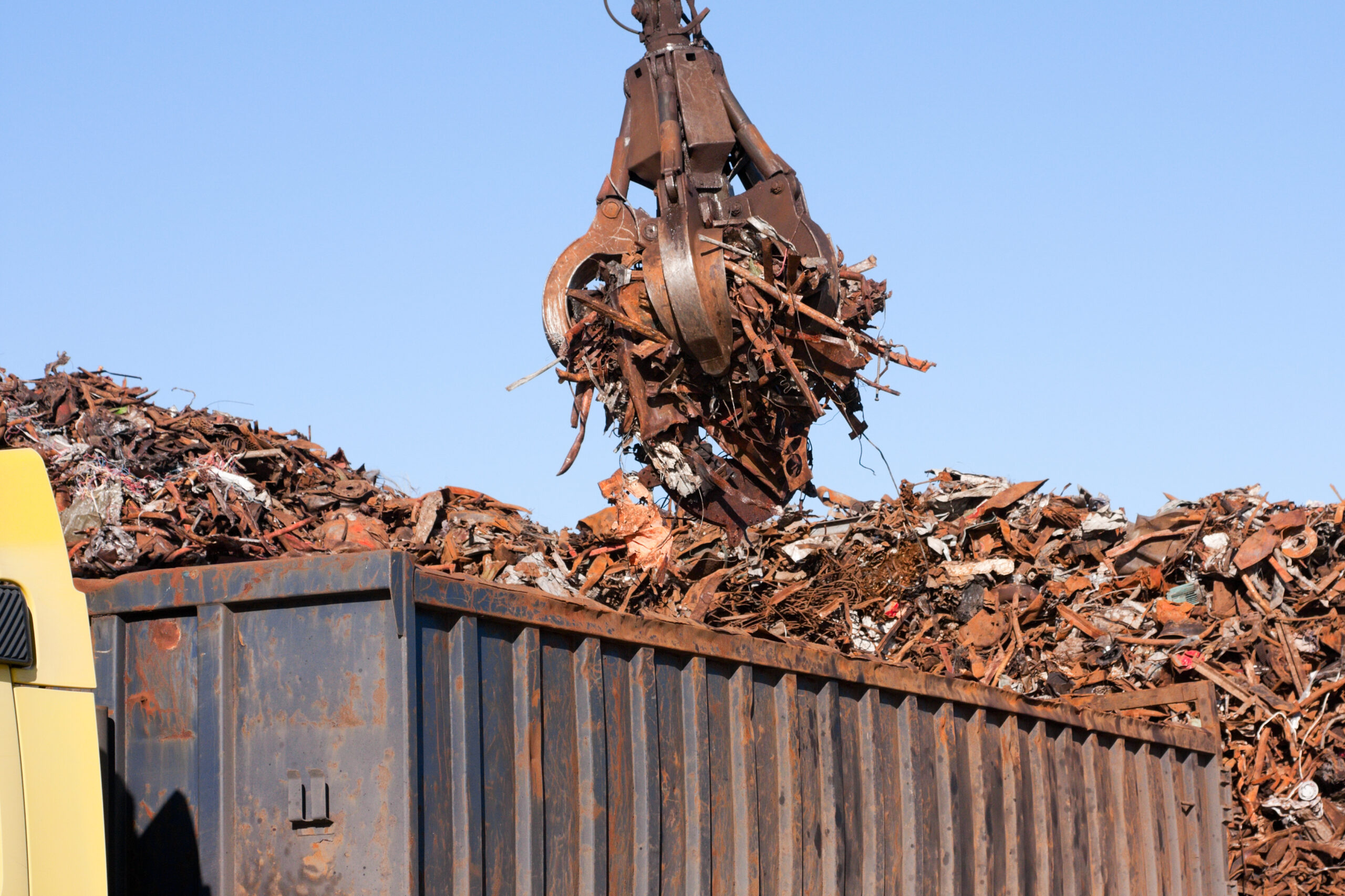In a world where waste is an ever-growing concern, finding innovative solutions to reduce landfill waste has become imperative. One such solution is industrial metal recycling, which offers numerous benefits and plays a vital role in waste reduction and resource conservation. Here are some key points about industrial metal recycling:
- Transforming trash into treasure: Industrial metal recycling is a process that turns discarded metals such as steel, aluminum, and copper into valuable resources.
- Decreasing landfill waste: By recycling industrial metals, industries can significantly decrease the amount of waste sent to landfills.
- Preserving natural resources: Recycling metals reduces the need for virgin materials in manufacturing, conserving natural resources in the process.
- Energy savings: Recycling metals requires much less energy compared to producing them from scratch, leading to significant energy savings.
- Reducing greenhouse gas emissions: Industrial metal recycling contributes to the reduction of greenhouse gas emissions, as it diminishes the need for energy-intensive mining and extraction processes.
- Recovering and reusing metals: Through recycling, metals can be recovered and reused in the manufacturing process, further decreasing the demand for new materials.
- Environmental impact reduction: By diverting metal waste from landfills, industrial metal recycling helps reduce water and air pollution, protect ecosystems, and conserve habitats.
This article explores the benefits, process, challenges, and initiatives associated with industrial metal recycling, highlighting its crucial role in waste reduction and resource conservation.
Benefits of industrial metal recycling
Industrial metal recycling offers numerous advantages, including the conservation of energy, reduced greenhouse gas emissions, and the preservation of natural resources. By diverting metal waste from landfills, this practice also helps alleviate the strain on these sites, which are rapidly reaching their capacity limits.
One of the significant benefits of industrial metal recycling is the reduction of environmental pollution and the conservation of natural resources. By recycling metal, we can prevent the need for new mining operations, which often have devastating effects on the environment.
Additionally, recycling metal reduces the amount of waste that ends up in landfills, leading to a decrease in landfill pollution. Industrial metal recycling plays a crucial role in promoting a more sustainable and eco-friendly approach to resource management.
Process of Industrial Metal Recycling
The process of industrial metal recycling involves various stages.
– Collection and sorting of scrap metal
– Transportation of scrap metal to recycling facilities
– Sorting of scrap metal based on type and composition
– Shredding of metal into smaller pieces
– Separation and purification of different types of metals
– Reuse of purified metals in manufacturing industries
Industrial metal recycling is a complex and multi-step procedure that involves collecting, sorting, transporting, shredding, separating, purifying, and ultimately reusing metals in manufacturing industries.
Challenges and limitations of industrial metal recycling
Industrial metal recycling is not without its challenges. These challenges can hinder the efficient and widespread adoption of this environmentally friendly practice of industrial metal recycling.
Presence of contaminants in the recycled metal, such as paint or coatings, which can affect the quality of the recycled material.
Process of separating different types of metals can be complex and time-consuming. Furthermore, the transportation and logistics involved in collecting and processing metal waste can be costly and energy-intensive.
Recycling Initiatives and Regulations
Industrial metal recycling initiatives and regulations play a crucial role in promoting sustainable waste management practices and reducing the environmental impact of metal production and disposal. These initiatives focus on creating a framework for effective collection, sorting, and processing of metal waste, as well as encouraging the use of recycled metals in manufacturing processes. Regulations help ensure compliance with environmental standards and encourage responsible recycling practices, ultimately minimizing the amount of metal waste that ends up in landfills.
Industrial Scrap Metal Recycling Services
The benefits of industrial metal recycling cannot be overstated. Greenway Metal Recycling, with its expertise in industrial scrap metal recycling, is well-equipped to help businesses make a significant impact on reducing landfill waste and promoting sustainability. By partnering with Greenway, businesses can contribute to conserving natural resources, reducing energy consumption, and minimizing pollution.
Greenway’s commitment to implementing advanced technologies and adhering to proper waste management systems ensures that businesses can trust their services. Join Greenway Metal Recycling in its efforts towards a greener and more sustainable future. Contact them today to explore industrial scrap metal recycling services and make a positive difference in the environment.

